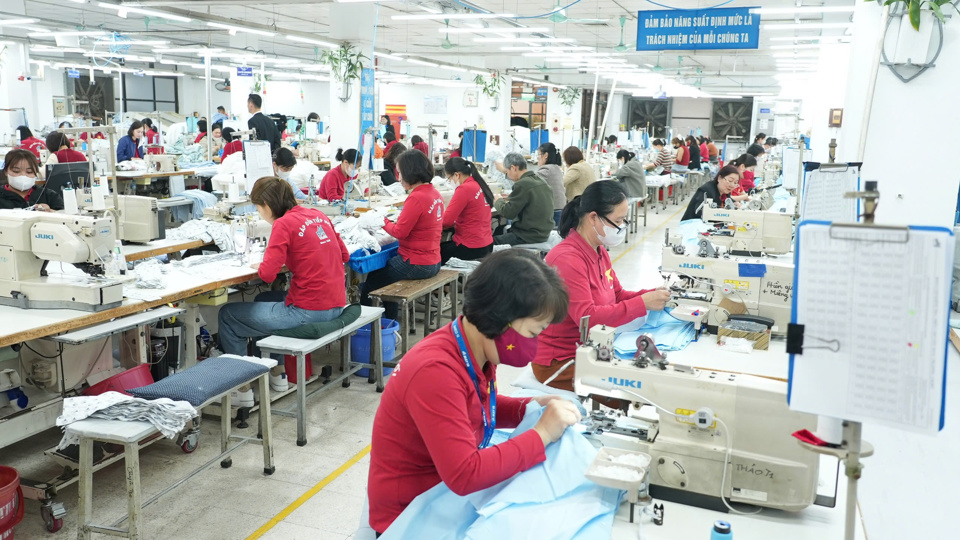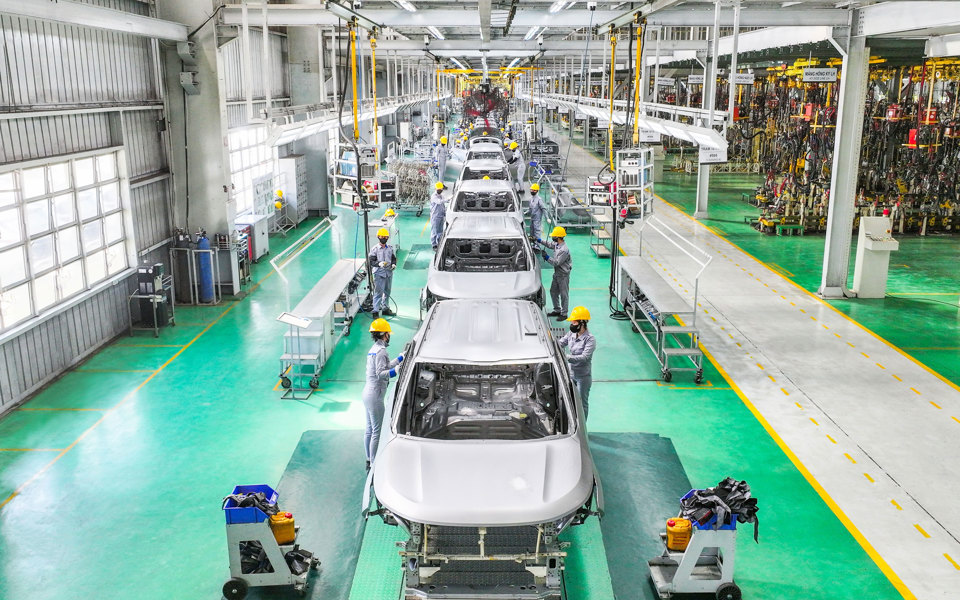Vietnam's institutional reforms critical to achieving 2025 growth targets
The State's strong determination to identify bottlenecks and put concrete solutions in place matters a lot to economic growth.
Nguyen Quoc Viet, Deputy Director of the Vietnam Institute for Economic and Policy Research (VEPR), discussed with the Vietnam Financial Times about institutional reform solutions to help Vietnam achieve high growth rates to meet its 2025 growth targets.
What are the advantages and challenges for Vietnam's economy in 2025, given the GDP growth target of 8% or higher from 2026?
| Local workers at the Garco 10 factory. Photo: Khac Kien/The Hanoi Times |
A key advantage favoring Vietnam's growth in 2025 is the confidence and enthusiasm following an impressive recovery in 2024.
There has also been significant progress in the business environment and market freedoms, with increased investment flows (both foreign direct investment and private investment), fair and equitable access to resources, and the responsible participation of entrepreneurs in reconciling economic, social and environmental factors.
Vietnam has a relatively secure and advantageous geopolitical position and international relations. It also has a better foundation in terms of the three strategic breakthroughs: institutional reform, quality of human resources and infrastructure.
But challenges remain with the latest is US President Donald Trump's trade protectionism, which is expected to further fragment the global economy and weaken the new drivers of global growth. At the same time, geopolitical competition among major powers and the imposition of tit-for-tat sanctions are disrupting global supply chains and affecting international trade. Vietnam, with its high degree of economic openness, is particularly vulnerable.
Domestically, social disparities and inequalities have a profound impact on development trends and growth momentum.
What should Vietnam prioritize to achieve its 2025 growth targets?
| Nguyen Quoc Viet, Deputy Director of the Vietnam Institute for Economic and Policy Research. Photo:the Vietnam Financial Times |
It is important to adopt macroeconomic policies prudently, assess impact carefully, and provide a clear roadmap for the realization.
I believe that the governance of institutions and governments should improve their effectiveness and efficiency, which requires modernization, transparency, clarity and ease of implementation in order to reduce business risks and compliance costs.
Investment in the development of science and technology is essential to improve competitiveness and foster innovative and sustainable business practices. It is crucial to remove institutional bottlenecks and barriers in the business environment to ensure that all economic entities can operate equally and freely within a fully market-driven mechanism.
What are your expectations for implementing the three key breakthroughs?
| The bodies and components for the Kia New Carnival are produced at the THACO Kia plant. Photo: THACO |
Implementing breakthrough reforms to improve the business environment and build community confidence and enthusiasm is key for businesses to thrive in Vietnam.
To set a new standard for its next round of institutional reforms, Vietnam also needs to reassess the past decade's implementation of strategic advances, particularly in this area. This includes streamlining policies, legal documents, regulations and specific business licensing conditions, avoiding a one-size-fits-all approach.
It is also important to address bottlenecks in the judiciary, the handling of contract disputes, bankruptcy and the liquidation of firms and business households. Institutional and policy reforms should aim to free up resources for the economy as a whole, including capital, the application of science and technology, the education and training of human resources, and the management of environmental issues.
In addition, the focus should be on the effective use of information technology, in particular online public services, to successfully build e-government in the context of a digital society.
As Party General Secretary To Lam pointed out, addressing institutional bottlenecks and committing to reform can improve governance and create significant opportunities for change. With a solid roadmap, Vietnam could achieve high growth over the next five to ten years.
Thank you for your time.














